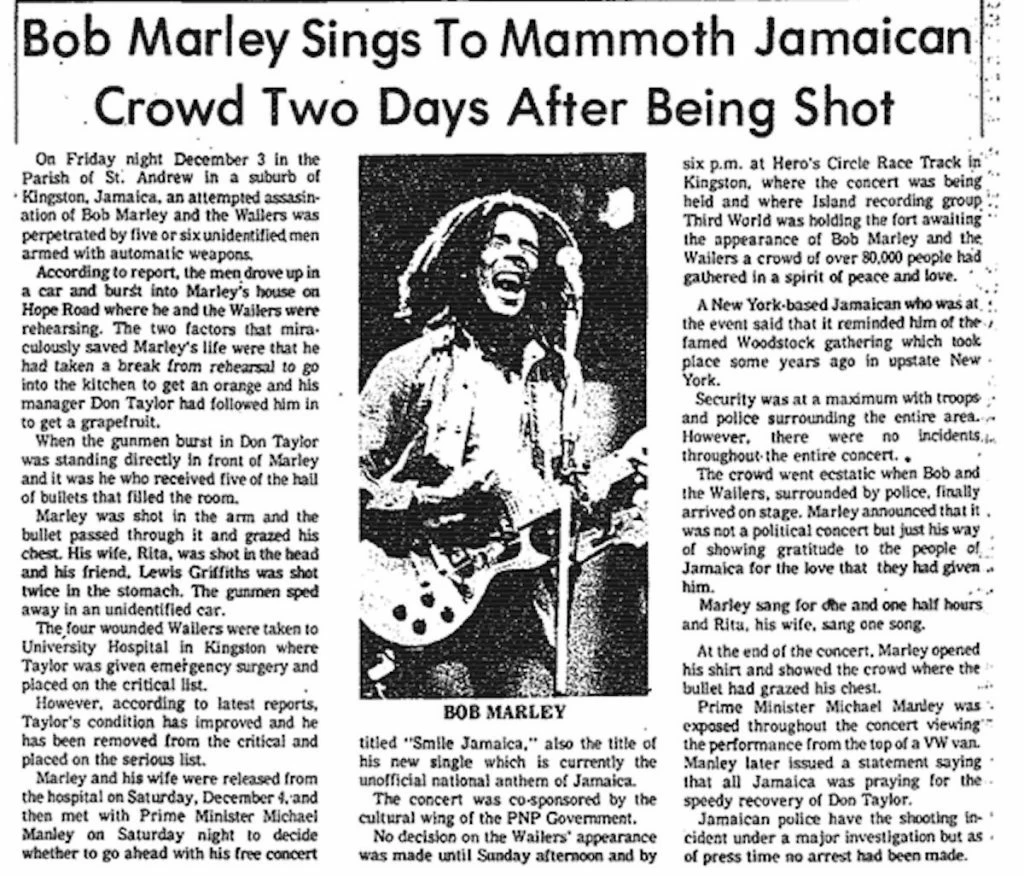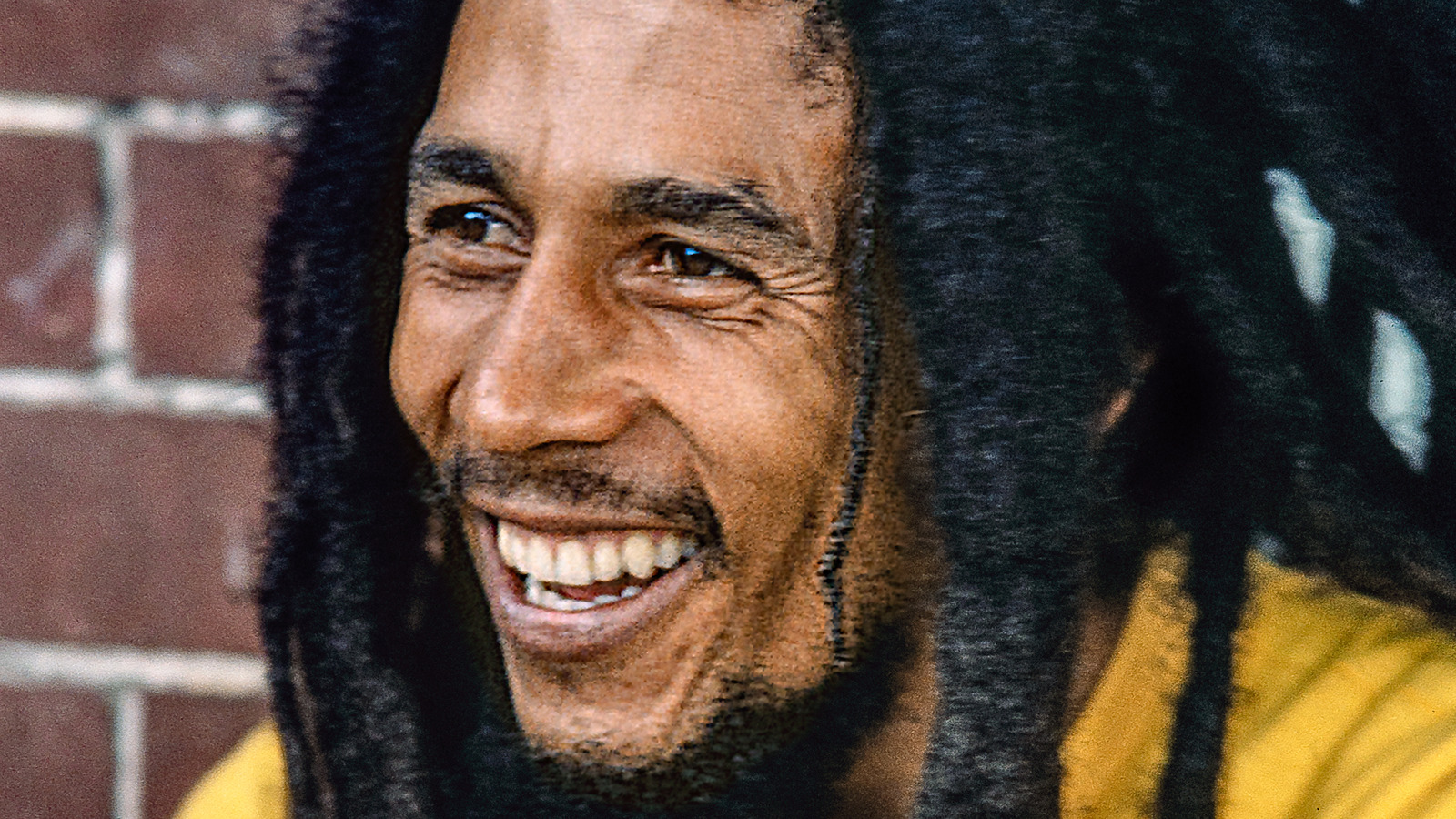How Bob Marley's Death Shook The World: The Untold Story
When you hear the name Bob Marley, what comes to mind? Reggae beats, messages of peace, and an iconic voice that changed the music industry forever. But behind the legend lies a story of struggle and sacrifice, one that ultimately led to his untimely death. Today, we're diving deep into how Bob Marley's death unfolded, exploring the causes, controversies, and lasting legacy he left behind.
Bob Marley wasn't just a musician; he was a cultural icon whose influence transcended borders and genres. His music spoke to the soul, addressing issues of inequality, love, and unity. But beneath the surface, there was a battle no one saw coming. In this article, we'll uncover the truth about how Bob Marley's death became a defining moment in music history.
Before we dive into the details, let's take a moment to reflect on why this matters. Bob Marley's life and death are more than just a story—they're a testament to the power of resilience and the impact one person can have on the world. So, grab your favorite beverage, and let's get into it!
Read also:Exploring The Remarkable World Of Ts Luana A Digital Content Creator Extraordinaire
Understanding the Man Behind the Music
Bob Marley's Early Life and Rise to Fame
Bob Marley was born on February 6, 1945, in Nine Mile, Jamaica. From a young age, he showed a passion for music, blending traditional Jamaican sounds with influences from American R&B. His journey wasn't easy, but his determination paved the way for global success. By the 1970s, Bob Marley and The Wailers had become international sensations, spreading the message of reggae to millions around the world.
But fame came at a cost. Bob faced numerous challenges, including political turmoil in Jamaica and personal struggles that would later impact his health. Understanding his early life and rise to fame is crucial to grasping the context of how Bob Marley's death unfolded.
How Bob Marley's Death Came to Be
The Medical Diagnosis
In 1977, Bob Marley noticed a small lesion on his toe while playing soccer. At first, he dismissed it as a minor injury, but tests revealed something far more serious: malignant melanoma, a form of skin cancer. Despite recommendations to have the toe amputated, Bob refused, citing his Rastafarian beliefs and the importance of maintaining his body's integrity.
This decision would later prove fatal. As the cancer spread, Bob's health deteriorated rapidly, leading to a series of complications that ultimately claimed his life.
The Final Days: A Journey to Healing
Bob's Battle Against Cancer
As the cancer progressed, Bob sought treatment in Germany, where he underwent alternative therapies. These treatments, while innovative, were unable to stop the cancer's relentless advance. During this time, Bob remained optimistic, continuing to write music and express his faith in the divine plan.
His final days were marked by a profound sense of acceptance and peace. Even in the face of death, Bob Marley's spirit remained unbroken, inspiring those around him with his unwavering belief in the power of love and unity.
Read also:Jonny Brodzinski Tells The Post The Key To His Rangers Breakthrough
Unpacking the Controversies
Did Bob Make the Right Choice?
Many have debated whether Bob Marley made the right decision by refusing amputation. Some argue that his faith overshadowed medical advice, while others believe his choice was a reflection of his deeply held beliefs. Regardless of where you stand, it's clear that Bob's decision was rooted in his commitment to his principles.
This controversy highlights the complex relationship between personal beliefs and medical treatment, a conversation that continues to resonate today.
Bob Marley's Legacy: A Lasting Impact
How His Death Changed the World
Bob Marley's death on May 11, 1981, sent shockwaves through the music industry and beyond. His passing marked the end of an era, but his legacy only grew stronger with time. Today, Bob is remembered not just as a musician but as a symbol of hope, resistance, and universal love.
His music continues to inspire millions, transcending generations and cultures. From "No Woman, No Cry" to "Redemption Song," Bob's songs remain timeless classics that speak to the human condition.
The Science Behind Melanoma
Understanding the Disease
Melanoma is one of the most aggressive forms of skin cancer, often caused by excessive exposure to UV radiation. While it accounts for only a small percentage of skin cancer cases, it is responsible for the majority of skin cancer-related deaths. Early detection and treatment are critical in combating this disease.
Bob Marley's case serves as a powerful reminder of the importance of regular check-ups and listening to medical advice. His story has inspired countless individuals to prioritize their health and seek timely treatment.
The Role of Rastafarianism in Bob's Life
Beliefs That Shaped His Decisions
Rastafarianism played a central role in Bob Marley's life, influencing his music, lifestyle, and worldview. Central to this belief system is the idea of living in harmony with nature and maintaining the body's integrity. For Bob, amputation was not just a medical procedure—it was a violation of his spiritual principles.
This perspective sheds light on the choices he made during his battle with cancer and underscores the importance of respecting cultural and religious beliefs in healthcare.
Remembering Bob Marley: A Tribute
A Table of Key Facts
Here's a quick look at some key facts about Bob Marley:
| Full Name | Robert Nesta Marley |
|---|---|
| Birthdate | February 6, 1945 |
| Place of Birth | Nine Mile, Jamaica |
| Date of Death | May 11, 1981 |
| Cause of Death | Malignant Melanoma |
Lessons Learned from Bob's Journey
What We Can Take Away
Bob Marley's life and death offer valuable lessons for all of us. Here are a few key takeaways:
- Embrace your beliefs, but don't ignore medical advice.
- Prioritize early detection and prevention when it comes to health issues.
- Use your platform to spread messages of love, unity, and change.
- Live life with purpose and passion, no matter the challenges you face.
How Bob Marley's Death Continues to Inspire
A Legacy That Lives On
Decades after his passing, Bob Marley's influence remains as strong as ever. His music continues to inspire new generations, and his message of peace and unity resonates in a world that desperately needs it. Through his art and his life, Bob showed us what it means to live with purpose and integrity.
As we reflect on how Bob Marley's death changed the world, we're reminded of the power of one person to make a difference. His legacy is a testament to the fact that even in death, a true icon can continue to inspire and transform lives.
Conclusion: Carry the Torch
In conclusion, Bob Marley's death was a tragic loss, but it also served as a catalyst for change. His story teaches us the importance of balance—between faith and science, passion and pragmatism, and love and action. As you reflect on his journey, consider how you can carry his torch and make a difference in your own life and community.
So, what's next? Share this article with someone who needs to hear Bob's story. Leave a comment below and let us know what inspires you most about his legacy. And most importantly, keep the spirit of Bob Marley alive by spreading love and positivity wherever you go.
Table of Contents
- Understanding the Man Behind the Music
- How Bob Marley's Death Came to Be
- The Final Days: A Journey to Healing
- Unpacking the Controversies
- Bob Marley's Legacy: A Lasting Impact
- The Science Behind Melanoma
- The Role of Rastafarianism in Bob's Life
- Remembering Bob Marley: A Tribute
- Lessons Learned from Bob's Journey
- How Bob Marley's Death Continues to Inspire


